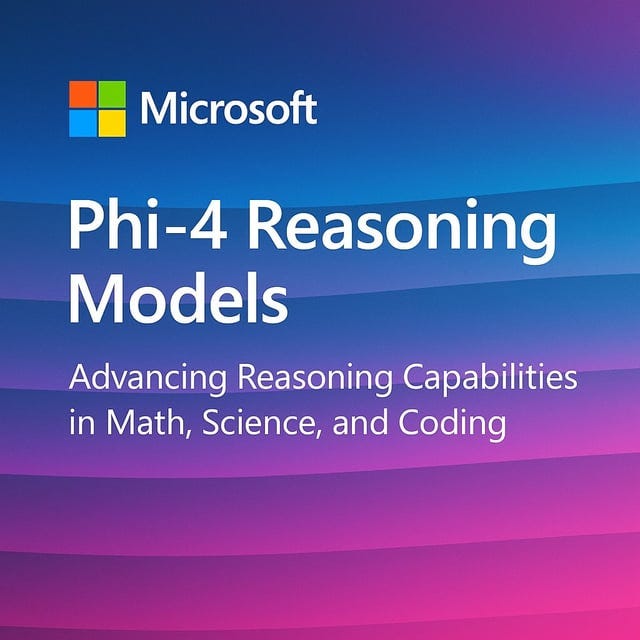This Week in AI: Week of 11th May 2025
This week in AI felt like a high-stakes chess game, with major players making bold moves across the board. Let's dive into the details of these pivotal developments and what they mean for the future.
Microsoft's Tiny Titan: Phi-4 Model Outsmarts Giants in Reasoning
Here’s What You Need to Know
Microsoft has launched Phi-4-reasoning, a new language model boasting just 14 billion parameters. Despite its relatively small size compared to models with hundreds of billions of parameters, Phi-4 has demonstrated superior performance in complex reasoning tasks, outperforming models like DeepSeekR1-Distill-Llama-70B. This achievement highlights the potential for highly optimized, smaller models to excel in specific cognitive abilities.
Why It’s Important for AI Professionals
This development challenges the prevailing notion that bigger models are always better, especially for reasoning. It suggests a shift towards more efficient architectures and targeted training methodologies. AI researchers and engineers should pay close attention to the techniques employed in Phi-4, as they could inspire new approaches to building specialized AI systems with lower computational costs. This could also democratize access to advanced reasoning capabilities.
Why It Matters for Everyone Else
The success of smaller, more efficient AI models could lead to their integration into a wider range of applications and devices, potentially bringing sophisticated reasoning capabilities to everyday tools without requiring massive computing resources.
Aish’s Prediction
I've always believed that intelligence isn't just about size, but about how you use what you've got. Phi-4 is a perfect example. This signals a potential sweet spot in model development- powerful reasoning without the exorbitant infrastructure demands. Over the next year, I expect to see more research focusing on these "lean but mean" models, particularly for edge computing and specialized applications. It wouldn't surprise me if we see a new benchmark emerge that favors efficiency alongside raw power.
IBM Bets Big on AI Agents with New Think 2025 Announcements
Here’s What You Need to Know
At its Think 2025 conference, IBM unveiled a suite of new tools and updates to its watsonx platform specifically designed to empower businesses in building and scaling AI agents. These announcements include enhanced capabilities for agent orchestration, workflow automation, and a new Linux system optimized for demanding AI workloads. IBM is positioning itself as a key enabler for enterprise-grade AI agent deployment.
Why It’s Important for AI Professionals
IBM's focus on AI agent tooling provides AI architects and developers with more robust platforms for creating autonomous systems. The emphasis on scalability and enterprise integration addresses critical challenges in deploying AI agents in real-world business environments. Professionals should explore the new features in watsonx and the potential of the optimized Linux system to streamline their AI agent development and deployment pipelines.
Why It Matters for Everyone Else
Businesses across various industries stand to benefit from easier access to building and deploying AI agents, potentially leading to more efficient operations, improved customer service, and the automation of complex tasks. This could translate to better products and services for consumers.
Aish’s Prediction
IBM has a strong foothold in the enterprise space, and their strategic push into AI agents is a smart move. I see this as a catalyst for the wider adoption of AI agents in businesses. Over the next 6-9 months, expect to see more case studies emerging from companies leveraging these tools. I also predict a rise in demand for AI professionals specializing in agent design and orchestration. So, keep an eye on how well these tools integrate with existing enterprise systems- that will be the real litmus test for their success.
Keep reading with a 7-day free trial
Subscribe to AI with Aish to keep reading this post and get 7 days of free access to the full post archives.






